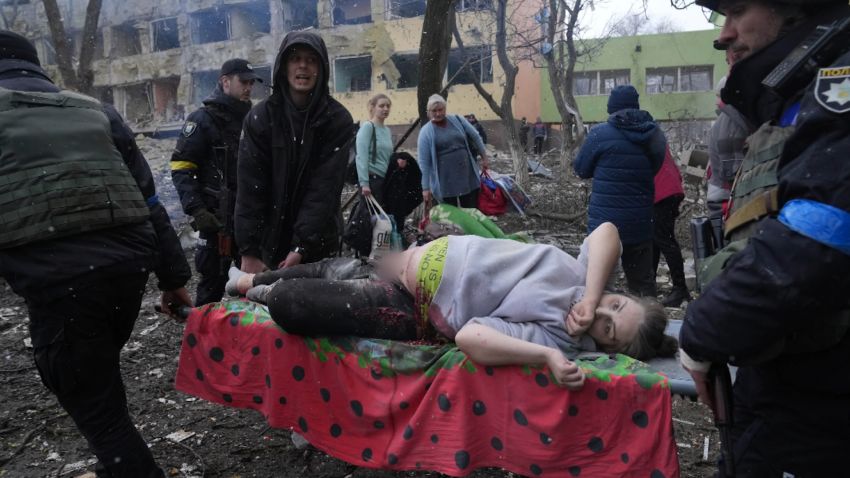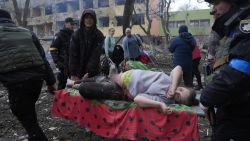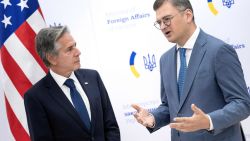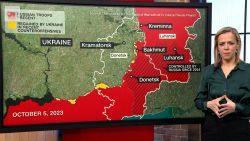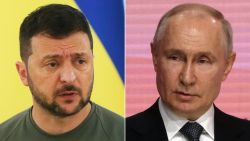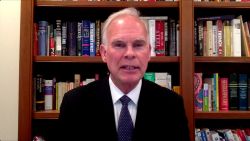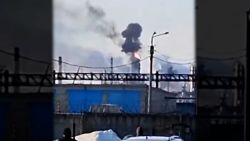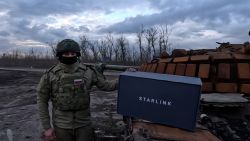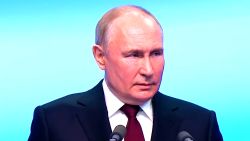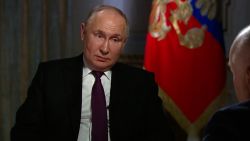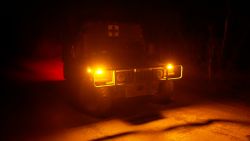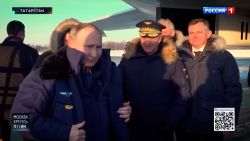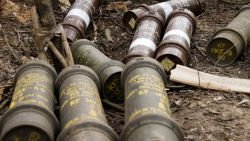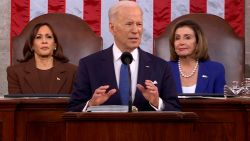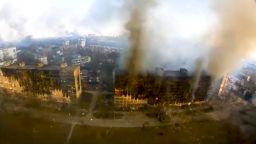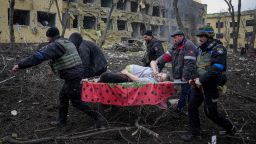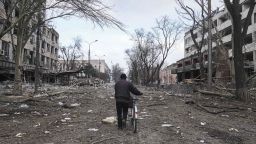Almost three weeks into Russian President Vladimir Putin’s war in Ukraine, harrowing images of bloodied pregnant women and children emerging from an obliterated hospital in Mariupol have shocked the world. Congress is now considering a resolution to investigate the Russian invaders for possible war crimes.
In an email interview with CNN Opinion, Michael A. Newton, an expert on war crimes, argues that such an investigation is justified due to the attacks on civilians.
He is a professor of the practice of law and professor of the practice of political science at Vanderbilt University. Newton served as the senior adviser to the Ambassador-at-Large for War Crimes Issues in the US State Department from 1999 to 2002. He also helped negotiate the International Criminal Court Elements of Crimes. The views expressed in this commentary are his own.
This interview has been lightly edited for clarity and flow.
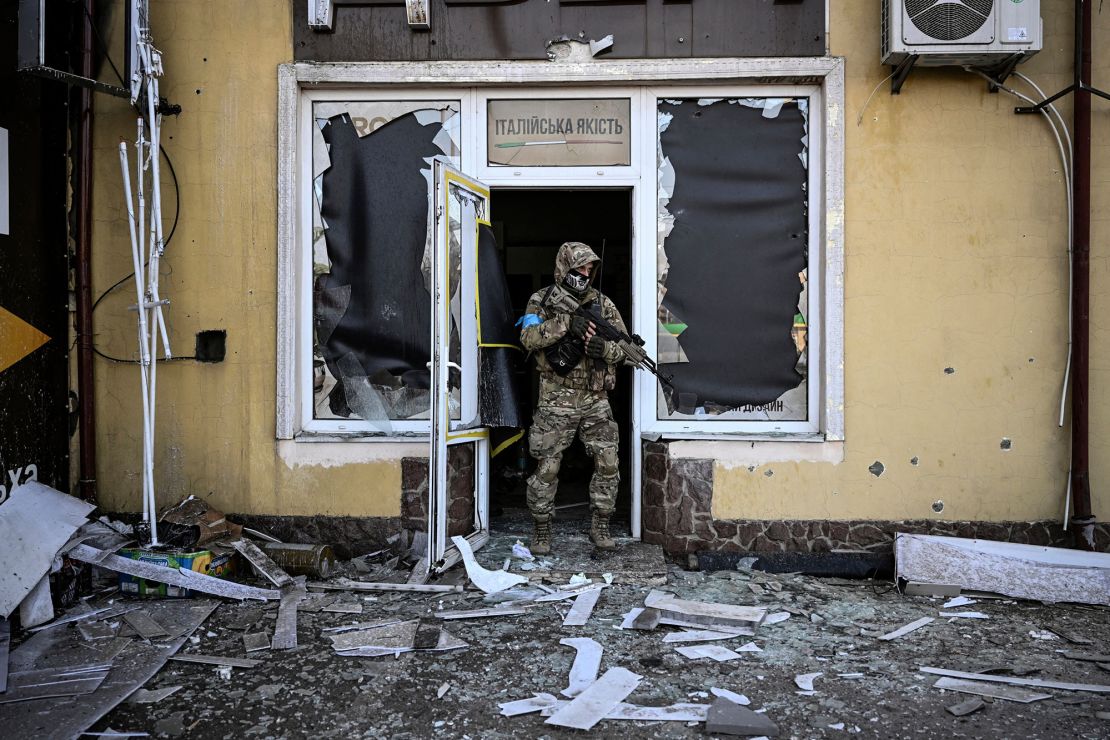
Let’s start with the basics – what constitutes a war crime?
According to the Geneva Conventions of 1949, a war crime is any act by which combatants and commanders fail to ensure respect for the civilian population, or illegally subject civilian objects to hostilities. Many other duties flow from this baseline, such as warning civilian populations “unless circumstances do not permit” and obligations to take “all feasible precautions” to minimize harm to civilian lives or property.
War crimes law relies on the foundational principle that fighters must “at all times distinguish between the civilian population and combatants – and between civilian objects and military objectives, and accordingly shall direct their operations only against military objectives.”
The laws of war apply in Ukraine because the Russian invasion is real. Despite the Russian label of the war as a “special military operation,” the Geneva Conventions on armed conflicts apply “even if the state of war is not recognized” by Russian officials.
Based on that definition, have we seen this already in Ukraine?
A record 41 other states have asked the International Criminal Court (ICC) to formally investigate crimes committed inside Ukraine because there is “reasonable basis” to believe that Russian forces are committing war crimes.
The list of possible charges grows daily. Karim Khan, the ICC prosecutor, observed that “if attacks are intentionally directed against the civilian population: that is a crime. If attacks are intentionally directed against civilian objects: that is a crime. … There is no legal justification, there is no excuse, for attacks which are indiscriminate, or which are disproportionate in their effects on the civilian population.”
Attacks aimed at demoralizing civilians are war crimes because civilian morale is never a legitimate military target. Russians have been accused of launching attacks inside the boundaries of the designated humanitarian corridors. Targeting of humanitarian convoys or relief operations providing food, water and medicine may constitute the crime of intentionally using starvation as a method of warfare.
What role should the US play in documenting war crimes in Ukraine?
The US Senate should confirm President Joe Biden’s nominee for US Ambassador-at-Large for Global Criminal Justice, Beth Van Schaack, by voice vote immediately. The ambassador has a vital role in coordinating US government efforts to document war crimes in a granular legal sense.
In war crime trials, prosecutors must have sufficient evidence to convict perpetrators beyond reasonable doubt based on their individual responsibility. The ambassador coordinates allied efforts, much as the UN War Crimes Commission facilitated prosecutions in Nuremberg after the Second World War.
The Ambassador-at-Large for Global Criminal Justice represents an important voice within the State Department and interagency, and Van Schaack’s leadership would help ensure success for the new joint US-EU project documenting war crimes.
Prosecution of Russian leaders, oligarchs and commanders for crimes in Ukraine must be a “whole of the Free World” approach. Brave Ukrainian lawyers are doing their part, and we should support them.
American leadership provides the centripetal force to consolidate documentation efforts and incorporate the rapidly coalescing array of private documentation efforts. Investigations will also provide corroborating evidence to refute Russian propaganda and legal distortions.
What role did you play in the prosecution of Serbian leader Slobodan Milosevic in the 1990s?
I stood at the border of Kosovo with the first Ambassador-at-Large for War Crimes Issues (the previous name for this ambassadorship), David Scheffer, to help document the crimes later charged against Slobodan Milošević.
We were eyewitnesses to the more than 20,000 Kosovar-Albanians who fled the murders committed in Pristina within a few days. Serbs forced them onto trains and sent them across the border, down tracks with landmines laid on either side and with snipers ready to murder those who stepped out of line. This led to an unprecedented effort to document atrocities in near real time.
Unlike the current Office of Global Criminal Justice, we reported directly to the US Secretary of State, and we took the FBI into Kosovo to assist investigations benefiting the Hague Tribunal. These efforts buttressed many cases, in addition to Milosevic’s.
Who would decide if any Russian leader is to be held responsible for war crimes?
Russian commanders, oligarchs and leaders may be prosecuted for ordering, committing or assisting war crimes. The law of command responsibility also criminalizes those who “knew or should have known” of crimes and failed to take necessary and reasonable measures to discipline the forces under their “effective control.”
The judges of each case assess the legal basis for every charge. Because the Geneva Conventions grant broad criminal jurisdiction to sovereign states, domestic officials may prosecute war criminals found on their territory, too.
The ICC treaty permits charges against senior leaders because it applies “equally to all persons without any distinction based on official capacity.” It adds that a person’s capacity as head of state does not exempt them from criminal responsibility.
How realistic is it that they would be tried in a courtroom?
Russian leaders should feel deep disquiet in the face of a deeply entrenched body of precedents since the Second World War.
Prosecuting those responsible for crimes committed in Ukraine conforms with patterns of international criminal justice that include many defendants who thought that they were above the law.
The presidents, prime ministers, defense officials, military commanders and staff officers who have been brought to book represent a litany of infamy. Defendants included Slobodan Milošević, former Liberian President Charles Taylor, former Iraqi dictator Saddam Hussein, former Rwandan Prime Minister Jean Kambanda, former Rwandan General Augustin Bizimungu – and many others.
These cases are the common heritage of mankind. However, the ICC cannot prosecute the crime of aggression conducted by Russian leaders against Ukraine – in part because Russia is not a state party to the ICC. We should instead work with our EU allies and/or the UN to establish a “New Nuremberg” empowered to adjudicate aggression-based offenses – minus Russian judges of course.
What can we learn from other war crimes trials?
These trials are inherently complex. They take more time to investigate and prosecute than victims would like. Proceedings must be based on compilation of evidence and procedural regularity absent overtones of political retribution.
During the trial of Saddam Hussein, the judge rebuked one lawyer, saying “you are a legal man in a court of law, not a circus.” No war criminals should develop complacency about escaping accountability because atrocity crimes are unconstrained by statutes of limitations.
Prosecutors exercise discretion based on actual evidence rather than polemics. Careful lawyering is the key. The sensational nature of charges requires close coordination with civil society and victims’ organizations. The Congress of Vienna, which reorganized Europe after the Napoleonic wars, termed Napoleon Bonaparte “Enemy and Disturber of the tranquility of the World.” Russian leaders are no less deserving of that title, yet political speech will help bring justice only when it is translated into binding legal opinion.
Even if no Russian leaders could be easily convicted, why would it still be worth pursuing charges?
The United States has a moral imperative to help Ukraine win the war that Russia brought to its citizenry. As the ICC came into existence, American diplomats promised that the US would not “retreat from its leadership role in the promotion of international justice and the rule of law.” We must uphold that promise.
Indeed, coordinated efforts to restore the rule of law are necessary to augment financial sanctions. In the world’s first military treatise, ancient Chinese general, military strategist and philosopher Sun Tzŭ wrote that “to fight and conquer in all your battles is not the supreme excellence; supreme excellence consists in breaking the enemy’s resistance without fighting.”
In upholding the law of war, our efforts will reclaim the initiative from the Russian aggressors. We must stand fast in upholding professional military norms and reinforcing the laws and customs of warfare.
